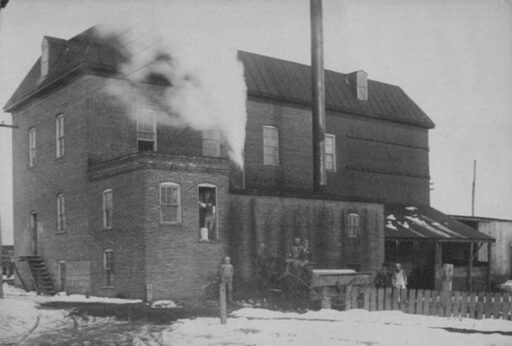General liability insurance is a vital aspect of risk management for contractors, providing essential protection against a variety of potential liabilities. This comprehensive guide delves into the intricacies of general liability insurance for contractors, exploring coverage details, the importance of adequate limits, and how to tailor policies to meet specific business needs. Understanding these insurance products is crucial for contractors to safeguard their operations, assets, and reputation in a competitive and often unpredictable industry.
Key Takeaways
- General liability insurance is crucial for contractors to protect against claims such as bodily injury, property damage, and reputational harm.
- Contractors must carefully assess their risk exposure and choose insurance limits that provide sufficient coverage for potential liabilities.
- Commercial auto insurance is essential for work vehicles, while property insurance safeguards a contractor’s physical assets.
- Contractor insurance policies should be customized to the unique needs of the business, avoiding a one-size-fits-all approach.
- Regular policy reviews and updates, along with understanding state-specific requirements, help contractors maintain appropriate coverage levels.
The Essentials of General Liability Insurance for Contractors

Understanding Policy Coverage
When selecting general liability insurance, contractors must carefully evaluate coverage options to ensure they align with the specific risks and liabilities of their business. Key coverage features to look for include bodily injury, property damage, product liability, and completed operations coverage.
It’s crucial to pay attention to coverage limits, deductibles, and the scope of coverage. Factors such as the business’s growth, operational changes, and new risks should be considered, as they may affect insurance requirements over time.
A comprehensive policy is vital for adequate protection. A minimal policy or one with a "coinsurance" clause could result in insufficient coverage during a claim, leading to potential financial strain.
Understanding the types of coverage available can help in making an informed decision:
- Cyber and Information Protection: Combines cyber liability and data breach insurance.
- Commercial Auto: For company-owned vehicles used in business operations.
- Hired and Non-Owned Auto Liability: For leased, rented, and employee-owned vehicles used for business.
- Commercial Umbrella: Offers extra protection beyond standard liability policy limits.
- Equipment Breakdown: Helps recover from damaged equipment and associated losses.
- Professional Liability (E&O): Covers legal expenses for lawsuits related to unsatisfactory work.
Assessing your risk is another critical step. For example, construction teams should prioritize workers’ compensation due to the high risk of injury, while financial firms need to guard against legal liabilities from mismanagement of funds.
Assessing Risk and Choosing Limits
When it comes to assessing risk and choosing limits for general liability insurance, contractors must take a meticulous approach. Regular risk assessments are crucial for identifying potential threats that could impact your business. These assessments should consider both internal and external factors, such as regulatory compliance, market volatility, and technological vulnerabilities.
Pay close attention to coverage limits, deductibles, and the scope of coverage provided. It’s essential to adapt your insurance as your business evolves, considering growth, operational changes, and new risks.
Understanding your business needs is the first step in determining appropriate coverage limits. Factors like the nature of your business, company size, and industry are pivotal in this decision-making process. Here’s a simple list to guide you through this process:
- Conduct a thorough risk assessment.
- Evaluate the specific risks and liabilities of your business.
- Consider the growth trajectory and changes in operations.
- Shop around and compare quotes from different insurers.
By systematically assessing risks and implementing risk management strategies, you can enhance resilience, minimize losses, and ensure that your business is adequately protected.
Legal Defense and Settlements
When facing a lawsuit, the coverage for legal defense and settlements is a cornerstone of general liability insurance for contractors. This protection can be the difference between a manageable situation and a financial disaster. Legal defense coverage typically includes attorney fees, court costs, and other related legal expenses. Settlements, on the other hand, are the amounts paid to resolve claims, whether through court judgment or negotiation.
It’s essential to understand that the costs associated with legal defense can quickly escalate, making adequate coverage limits vital for contractors.
In the event of a claim, contractors should be aware of the following steps:
- Promptly notify your insurance provider about the claim.
- Cooperate fully with your insurer during the investigation and defense process.
- Understand that your insurer may appoint legal representation on your behalf.
- Be prepared for the possibility of a settlement, which may be the most cost-effective resolution.
Remember, even independent contractors have the same legal obligations and liability exposures as larger firms, and they can be sued for various reasons, including damaging client property.
Commercial Auto and Property Insurance for Contractors

Why Commercial Auto Insurance is Crucial
Commercial auto insurance is a non-negotiable for contractors who depend on vehicles for their business operations. It provides a safety net for liability, collision, and comprehensive damages, ensuring that in the event of an accident, your business is not left vulnerable to financial strain.
A common misconception is that personal auto insurance policies will cover business-related vehicle use. However, this is not the case; personal policies typically exclude business use, leaving a significant gap in protection. For contractors, this means that without commercial auto insurance, any claims related to work vehicles may be denied, potentially leading to substantial out-of-pocket expenses.
Commercial auto insurance is not just a regulatory requirement; it’s a critical component of your business’s risk management strategy. It safeguards your assets and provides peace of mind, allowing you to focus on your work without the looming threat of uncovered vehicle-related incidents.
Understanding the distinction between personal and commercial auto insurance is crucial for contractors. Here’s a quick breakdown of why commercial coverage is indispensable:
- Liability protection: Covers damages if your business vehicle is involved in an accident causing injury or property damage to others.
- Collision coverage: Helps pay for repairs to your business vehicle after an accident.
- Comprehensive coverage: Provides financial protection against theft, vandalism, and other non-collision incidents.
Protecting Your Assets with Property Insurance
Commercial property insurance is essential for safeguarding your business’s physical space and the equipment that keeps your operations running. This type of insurance provides a safety net, offering financial support to recover from events like fire, theft, vandalism, and certain weather events. It’s crucial to assess the value of your assets, including inventory, computers, and other equipment, to determine the level of coverage you need.
- Property insurance reimburses for damages to your business property.
- Business income insurance helps recover lost income during downtime.
Remember, a basic policy may not offer full protection. It’s important to understand the terms, such as coinsurance clauses, which could result in partial payments if you’re underinsured.
Assessing your risk is a key step in choosing the right property insurance. For instance, construction teams often require workers’ compensation due to the high risk of injury on job sites. By improving safety measures, contractors can reduce insurance premiums. Additionally, working with full-service brokerages can provide access to a range of insurance products tailored to your specific needs. When applying for a General Contractor License, be mindful of the associated fees and the online submission process.
Combining General Liability with Other Coverages
Contractors often find that combining general liability insurance with other policies not only simplifies their insurance management but can also lead to cost savings. For instance, bundling general liability with commercial auto and property insurance might result in discounts that reduce overall expenses.
When considering insurance options, it’s crucial to evaluate how different policies complement each other. This ensures comprehensive protection for all aspects of your business.
It’s advisable to review and update your insurance portfolio annually to reflect changes in your business operations and risk exposure. Working with an experienced insurance agency can provide guidance on the optimal combination of coverages for your specific needs.
Remember, while general liability insurance is foundational, it may not cover all scenarios. Additional policies can fill those gaps, ensuring that your business is protected from a wide range of potential liabilities.
Navigating Contractors New Construction Insurance

The Importance of Adequate Coverage During Construction
Ensuring that you have adequate coverage during construction is not just a precaution; it’s a critical component of project management and client trust. Adequate insurance acts as a safety net, protecting both the contractor and the client from unforeseen events and liabilities. Without sufficient coverage, the financial consequences of accidents or mistakes can be devastating.
It’s essential to recognize that no two contractors’ insurance policies are the same. Tailoring your coverage to the specific needs of your project is vital for comprehensive protection.
When selecting insurance, pay close attention to coverage limits, deductibles, and the scope of coverage provided. These factors can significantly influence the effectiveness of your policy in the event of a claim. Additionally, consider the trajectory of your business, any operational changes, and emerging risks that could affect your insurance needs.
- Research accidents and legal liabilities specific to your field.
- Invest in coverage like workers’ compensation and general liability.
- Regularly review and update your policy to reflect changes in your business.
Evaluating Policies for New Construction Projects
When selecting a policy for new construction projects, it’s crucial to carefully review the coverage options. Each policy varies, and what may seem like a standard feature in one could be an additional rider in another. Look for essential coverage features such as bodily injury, property damage, product liability, and completed operations coverage.
A common pitfall is opting for a bare-bones policy, which may not offer adequate protection in the event of a claim. Be wary of policies with "coinsurance" clauses, as these can result in only partial payment if you’re deemed underinsured. To avoid such scenarios, assess your risk by researching the types of accidents and legal liabilities that are prevalent in your field.
It’s not just about having insurance; it’s about having the right insurance. Sufficient contractors new construction insurance is a key factor that informed consumers consider when choosing a contractor. Without it, both you and your customers are at risk, and you could miss out on jobs.
Remember, no two contractors insurance policies are the same. Tailoring your policy to your specific needs is not just advisable—it’s necessary for the protection of your business and clients.
How Insufficient Coverage Affects Your Business and Clients
Insufficient general liability insurance can have dire consequences for both contractors and their clients. Businesses may face financial ruin if they are unable to cover the costs of claims or legal actions due to inadequate coverage. This can lead to a cascade of negative effects, including damage to the business’s reputation and the potential loss of future contracts.
For clients, insufficient coverage on the contractor’s part can mean delays in project completion, additional costs, and a lack of recourse in the event of property damage or bodily injury. It’s crucial for contractors to evaluate their coverage options and ensure that their policy addresses their specific risks and liabilities.
- Financial Impact: Without adequate coverage, contractors may have to pay out-of-pocket for claims, which can be financially crippling.
- Reputational Damage: A single incident can tarnish a business’s reputation, making it difficult to secure future work.
- Client Trust: Clients rely on contractors to be fully insured; insufficient coverage can erode this trust and lead to lost business.
Pay close attention to coverage limits, deductibles, and the scope of coverage provided. Consider factors like the business’s growth trajectory, changes in operations, and emerging risks that may impact insurance needs over time.
Customizing Your Contractors Insurance Policy

Why One-Size-Fits-All Doesn’t Work
Contractors face a myriad of risks, each as unique as the projects they undertake. A one-size-fits-all policy may overlook the specific needs and risks of your business, leading to potential gaps in coverage. Customizing your insurance policy ensures that all aspects of your work are protected, from the tools you use to the employees who operate them.
- Assess the unique risks associated with your type of contracting work.
- Consider the scale of your projects and the value of your contracts.
- Evaluate the specific tools, equipment, and materials you use.
- Think about the number of employees you have and the nature of their work.
Customization not only provides peace of mind but also can be cost-effective. Tailoring your policy to match your actual risk exposure means you’re not overpaying for unnecessary coverage.
When seeking to customize your insurance, it’s important to work with insurance providers who understand the contracting industry. They can help guide you through the process of selecting the right coverages and policy limits, ensuring that your business is adequately protected without the burden of over-insurance.
Working with Insurance Agencies to Tailor Your Coverage
When it comes to customizing your contractors insurance policy, working with insurance agencies can be a game-changer. These agencies act as a one-stop-shop for contractors, offering specialized services that go beyond mere policy selection. They can assist with licensing, insurance, and enhancing your business capabilities for complex projects.
Consulting with insurance professionals is invaluable, as they possess specialized knowledge and provide tailored advice based on your business’s unique needs and risk profile. They can help assess your insurance requirements, recommend suitable coverage options, and negotiate policy terms and premiums on your behalf.
It’s essential to engage in a frank conversation with your insurance advisor. This dialogue ensures that you understand the nuances of your policy and that your coverage aligns with your business’s growth trajectory and emerging risks.
To ensure you’re getting the best deal, it’s advisable to:
- Contact an insurance agent specializing in your business structure or field.
- Obtain multiple quotes to compare offerings.
- Evaluate coverage options, paying close attention to limits, deductibles, and scope.
Remember, the right insurance agency will guide you to the protection that’s right for your business, from industry-specific policies to comprehensive coverage.
Reviewing and Updating Your Policy Regularly
As your business landscape shifts, it’s crucial to ensure that your insurance policy adapts accordingly. Reviewing and updating your policy annually is a best practice that can safeguard against being underinsured or overinsured. Significant events such as business expansion, asset acquisition, or market entry warrant a fresh look at your coverage.
Conducting regular risk assessments is key to identifying new threats and ensuring your insurance coverage is comprehensive and current. Pay close attention to coverage limits, deductibles, and the scope of coverage provided.
Consider bundling your insurance policies for potential discounts. Many insurers offer incentives for combining general liability with other policies like property or commercial auto insurance. This not only simplifies management but can also lead to cost savings.
Remember, insurance is not a ‘set it and forget it’ aspect of your business. Stay proactive and consult with your insurance provider to tailor your coverage as your business needs evolve.
Frequently Asked Questions About Contractors Insurance

Determining the Necessary Amount of General Liability Insurance
Determining the right amount of general liability insurance for contractors hinges on several factors, including the nature of your work, the size of your projects, and the inherent risks involved. Most contractors in the USA should carry at least $1,000,000 per occurrence and $2,000,000 in aggregate coverage. However, these figures are not set in stone and can vary based on individual business needs.
It’s essential to assess your business’s specific risks and consult with an experienced insurance agency to tailor your coverage appropriately. Remember, the cost of insurance is minor compared to the potential financial impact of a liability claim.
To help you start the assessment process, consider the following points:
- Evaluate the scope and scale of your projects.
- Understand the legal requirements in your state or region.
- Consider the potential hazards of your work environment.
- Factor in the value of your assets and the level of protection they require.
By taking these steps, you can work towards a policy that safeguards your business without overextending your budget.
Understanding Commercial Auto Insurance Requirements
Commercial auto insurance is a non-negotiable requirement for contractors who utilize vehicles for business operations. It safeguards against financial losses from accidents involving business vehicles. This type of insurance is distinct from personal auto policies, which do not typically cover business use of a vehicle. Without commercial auto insurance, contractors risk having claims denied and facing substantial out-of-pocket expenses.
In the United States, the standard requirement for commercial auto insurance is a $1,000,000 Combined Single Limit (CSL) for bodily injury and property damage. This coverage is crucial for both legal compliance and financial protection. Additionally, contractors should consider comprehensive and collision coverage to fully protect their business vehicles against a range of potential damages.
It’s essential to understand that vehicles used for business must be insured under a commercial auto policy, separate from any personal or other business insurance policies.
When determining the necessary coverage, contractors should evaluate the following factors:
- The type of vehicles used in the business.
- The risks associated with the business’s driving activities.
- The value of the vehicles and potential cost of repairs or replacement.
- Legal requirements in the state where the business operates.
Addressing Common Concerns and Misconceptions
When it comes to general liability insurance for contractors, misconceptions can lead to inadequate coverage and unforeseen liabilities. Understanding the nuances of your policy is crucial to ensuring that you’re fully protected in the event of a claim. For instance, many contractors believe that their general liability insurance will cover all potential risks, but this is not always the case.
- Policy Exclusions: Certain risks may not be covered under a standard policy, necessitating additional endorsements or separate policies.
- License Requirements: Contractor license requirements often include specific insurance coverage levels, which must be met to remain compliant.
- Claims Process: Understanding the claims process beforehand can save time and stress when dealing with an incident.
Misunderstandings about the scope and limitations of general liability insurance can lead to significant financial and legal repercussions. It’s essential to clarify these points with your insurance provider.
Contractors should also be aware of the evolving landscape of the industry, including the role of general contractors and the impact of technological advancements. Staying informed about these changes can help in anticipating future insurance needs and maintaining adequate coverage.
Conclusion
In conclusion, general liability insurance is an indispensable safeguard for contractors, providing a critical layer of protection against a multitude of risks that can arise during the course of business. From property damage and bodily injury to legal defense costs, this insurance is designed to shield your business from the financial strain of unexpected events. As we’ve explored, coverage limits and policy details can vary, so it’s essential to work with knowledgeable insurance professionals to tailor a policy that meets your specific needs. Remember, investing in the right general liability insurance is not just about compliance; it’s about ensuring the longevity and reputation of your contracting business in a competitive and often unpredictable industry.
Frequently Asked Questions About Contractors Insurance
What does general liability contractors insurance cover?
General liability contractors insurance protects your business from covered losses, damage, lawsuits, false advertising, libel, and many other claims that could be made against your business.
How much general liability insurance do I need as a contractor in the USA?
In most states in the USA, contractors need $1,000,000 per occurrence and $2,000,000 aggregate for General Liability Insurance. This is the standard amount for 99% of the policies sold in the United States.
Can I increase my general liability coverage limits?
Yes, you can increase your coverage amounts by working with an experienced contractors insurance agency to determine the appropriate amount of coverage to keep your business safe.
Why is commercial auto insurance important for contractors?
Commercial auto insurance is crucial because work vehicles used by contractors need to be protected under a commercial auto policy to cover potential damages and liabilities associated with their business use.
What is contractors new construction insurance and why is it important?
Contractors new construction insurance provides adequate coverage during construction projects, protecting both the contractor and their clients from liabilities. It’s important because it can impact job opportunities and risk management.
Are all contractors insurance policies the same?
No, no two contractors insurance policies are the same. Each policy should be customized to meet the specific needs and risks of the contracting business.





